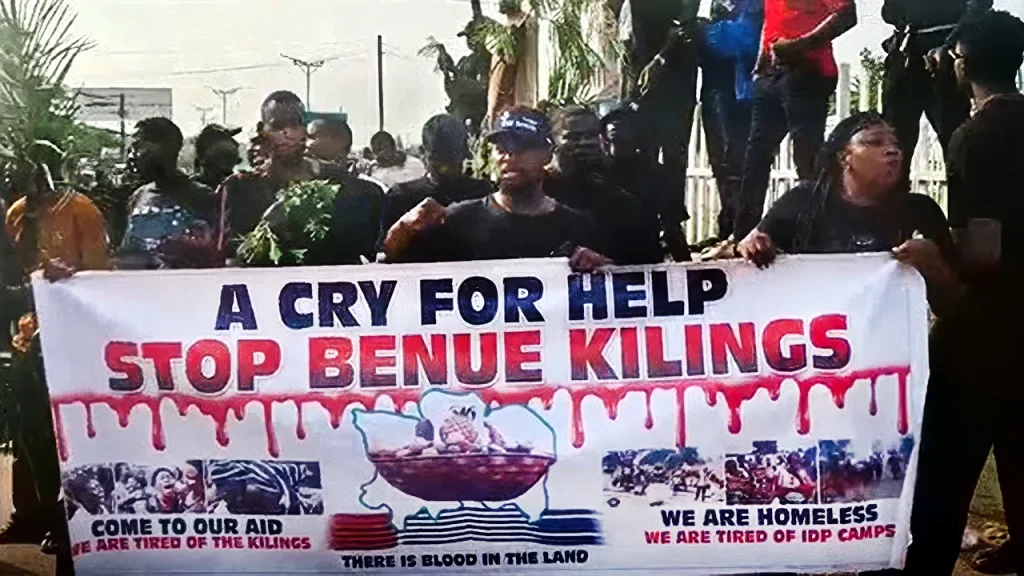Trump’s Stance on Nigerian Christian Persecution Welcomed with Caution
Nigeria’s Christian community has expressed gratitude for President Donald Trump’s recent attention to their plight, even as they navigate complex feelings about potential international intervention. After Trump designated Nigeria as a Country of Particular Concern and threatened to stop aid and impose sanctions against government officials, many persecuted Christians felt a glimmer of hope that their suffering might finally receive global attention. “For the last 20 years we’ve been trying to raise an alarm because the voices of people have been silenced,” said Pastor Fred from Plateau State, speaking under partial anonymity due to safety concerns. “Hopefully, by doing this, it’ll challenge the Nigerian government and those with influence and power to make a difference because lives are being lost.”
Despite their appreciation for Trump’s support, Nigerian Christians remain hesitant about any direct U.S. military intervention. This sentiment emerged clearly after Secretary of War Pete Hegseth posted that “The Department of War is preparing for action. Either the Nigerian government protects Christians, or we will kill the Islamic terrorists who are committing these horrible atrocities.” Pastor Fred, whose church has faced multiple attacks from Islamic militants, expressed his conflicted feelings: “I find that quite uncomfortable, as a Nigerian, imagining soldiers coming in. (I’m) very uncomfortable with it, but I’m more uncomfortable with the fact that people are being slaughtered, and the government is doing very little too.” This perspective reveals the painful dilemma facing many Nigerian Christians – wanting protection while also desiring to maintain their national sovereignty and dignity.
The scale of violence against Christians in Nigeria has reached alarming proportions. President Trump claimed that three of every four Christians murdered worldwide last year – 3,100 out of 4,476 deaths – were killed in Nigeria, citing figures from Open Doors’ World Watchlist 2025. According to the U.S. Commission on International Religious Freedom, about 46% of Nigeria’s population is Christian, with areas like Plateau State reportedly having a Christian population as high as 90%. Yet these communities face relentless attacks from radicalized Fulani nomadic tribesmen, with horrific accounts of violence including the decapitation of children and widespread land seizures. One bishop, who also requested anonymity for safety reasons, described the situation: “The challenge that we have is that Fulani militants are coming to kill without anybody stopping them. They kill with impunity. You call the security (Nigerian authorities). If they come, they come late — after people have been killed and after homes have been burnt.”
The violence shows no signs of abating, with Christians reporting wave after wave of attacks. In December 2023, the same bishop recounted a particularly devastating series of events: “They [Fulani militants] killed 17 people. We thought it was over. While we went to do the burial, they attacked more than 25 villages in Plateau State, killing more than 100 people, including children.” Fox News Digital has documented cases where Fulani militants have shouted “Death to all Christians” during attacks, highlighting the religious motivation behind much of the violence. A Nigerian lawyer, also speaking anonymously, described conditions as “indescribably tough,” noting that “thousands have been killed, maimed, pregnant women having their bellies ripped open, their farmlands destroyed and their ancestral lands taken over by the vicious Fulani militants.” These graphic accounts underscore the brutality of the situation and the desperation felt by many Nigerian Christians.
For many Nigerian Christians, Trump’s intervention represents a rare acknowledgment of their suffering on the world stage. The bishop expressed his gratitude: “The Christians here feel that this development is right. Somebody [in Washington] is checking, somebody’s looking, somebody is observing what is happening in Nigeria, and we believe this is going to put pressure on the government. We want to make sure that the security forces begin to do what they ought to do.” Similarly, the Nigerian lawyer told Fox News Digital that “the comments by President Trump are cheering to me and also to many Nigerians, especially from the Middle Belt,” and urged that action be taken “fast, before the Nigerian government turns to Russia or China.” These statements reflect both hope and a sense of urgency – a belief that international pressure might succeed where domestic advocacy has failed to produce adequate protection for Christian communities.
The Nigerian government, for its part, has pushed back against characterizations of the violence as primarily religious in nature. Nigeria’s minister of information and national orientation stated that “Nigeria remains firmly committed to protecting the rights, safety and freedom of worship of all its citizens — Christians, Muslims and people of other faiths,” describing the country as “a multi-religious nation where communities of different beliefs have coexisted for centuries.” The government maintains that it “continues to confront violent extremism in all its forms, whether motivated by ideology, criminality, or ethnicity,” and emphasized that “any external engagement on this issue must be grounded in facts, mutual respect and partnership, rather than perception or misinformation.” This response highlights the complex interplay of religious, ethnic, and political factors in Nigeria’s ongoing violence, as well as the government’s sensitivity to international criticism. For Nigeria’s Christians, caught between brutal attacks and inadequate protection, the hope is that increased international attention – whether from Trump or other world leaders – might finally bring the security they have long been denied, while respecting their nation’s sovereignty and right to determine its own path forward.


